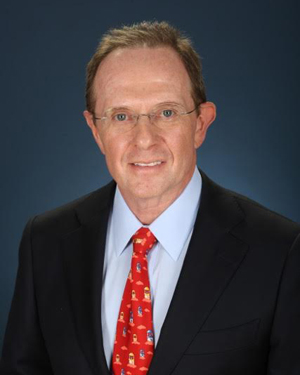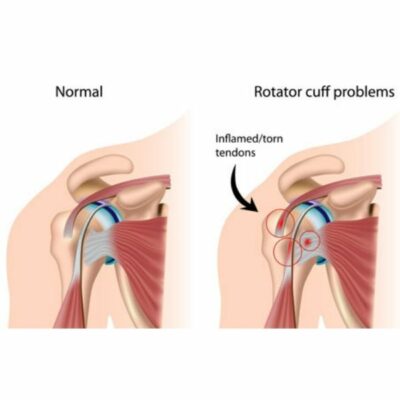Rotator Cuff Injury Specialist

Are you an athlete who participates in sports that involve throwing overhead? If so, you may be at risk of sustaining a rotator cuff tear. A rotator cuff tear is typically caused by a fall, sports injury or degeneration. Rotator cuff injury specialist, Dr. James Mazzara provides diagnosis and both surgical and nonsurgical treatment options for patients in Manchester, South Windsor, Enfield, Glastonbury and surrounding Hartford communities who have sustained a rotator cuff injury. Contact Dr. Mazzara’s team today!
What is a Rotator Cuff Injury?
The rotator cuff is a group of four muscles and tendons that cover the top part of the humerus (arm-bone) keeping the head of the bone firmly within the shallow socket of the shoulder. The rotator cuff is flexible-bending, stretching and rotating-making the shoulder the most mobile joint in the body. A rotator cuff injury can occur in both younger and older patients and is most often seen in patients who perform continuous overhead arm movements. Rotator cuff injuries can also occur from a fall, degeneration of the tendon, overuse, accident or sports injury. Dr. James Mazzara, shoulder specialist serving Manchester, South Windsor, Enfield, Glastonbury and surrounding Hartford communities is extremely skilled at diagnosing and repairing rotator cuff injuries and getting patients back to their active lifestyles.
What Causes a Rotator Cuff Injury?
Overuse – Rotator cuff injuries can often be caused from overuse, especially when the same motion is repeated above shoulder level.
Age/Degeneration – Tendons and muscles naturally lose their strength and flexibility as we age, due to the body’s decrease in its internal ability to heal and regenerate. As we age, it becomes easier to damage the muscles and tendons in the shoulder. Pain from this type of tear can accumulate over time, gradually worsening the longer the tear goes untreated.
Injury – Rotator cuff tears can happen from a fall, automobile accident or sports injury. Pain from this type of tear is usually immediate and patients experience loss of use, loss of range of motion and less function in the shoulder.
What are the Symptoms of a Rotator Cuff Tear?
Pain is the body’s first alert system to signal when something is wrong in the shoulder. A rotator cuff injury is often accompanied by sharp pain, weakness and tenderness in the joint. Pain with reaching and lifting, especially at or above shoulder height is often a related complaint. Pain at night is also common in rotator cuff tears. Dr. Mazzara is a shoulder specialist and can help diagnose the reason for pain in the shoulder.
How is a Torn Rotator Cuff Diagnosed?
Dr. Mazzara is a shoulder specialist with many years of experience in diagnosing shoulder problems. He will conduct a thorough examination, testing the range of motion, areas of pain, as well as strengths and weaknesses of the shoulder joint. A complete patient history will help in obtaining a proper diagnosis. Often, a variety of tests may be utilized to determine the extent of muscle and tendon damage. Tests include X-rays an MRI and an in-office ultrasound, which can pin-point the torn tendon and possible complications.
What is the Treatment for Rotator Cuff Tears and Injuries?
Surgical
If surgery is recommended, Dr. Mazzara will discuss the options, benefits of various procedures and the expected outcome. Activity level, age and injury severity need to be considered in a patient’s plan of treatment.
Often, Dr. Mazzara will use a minimally invasive surgical procedure called arthroscopic rotator cuff repair. This is where the tear is repaired using a series of small incisions in the shoulder. With the help of a small camera and small surgical instruments, the cuff can be repaired without opening the shoulder. Arthroscopic surgery has less recovery time, a lower chance of infection and a quicker healing time.
Non-Surgical
When surgery can be avoided, the goal is to reduce pain and inflammation, and to strengthen the uninjured muscles. Physical therapy, ice, heat, rest and anti-inflammatory medication can be used to alleviate pain and allow improved function.
For more information on rotator cuff injuries, please visit Dr. James Mazzara, Shoulder Specialist in Manchester, South Windsor, Enfield, Glastonbury and surrounding Hartford CT communities.
